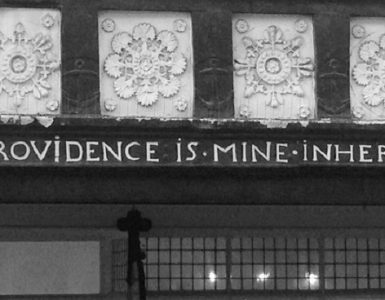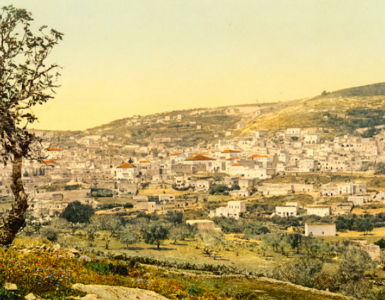While reading an American newspaper published in the eighteen fifties, I ran across an advertisement for a lecture titled, “Recreation Among the Dictionaries.” The scheduled speaker was a minister and the locals were invited to attend the discourse at the Athenaeum and pay a nominal fee that would be given to an orphanage. The title intrigued me because recreation and dictionaries are words which seem mutually exclusive; recreation is fun, but dictionaries are tools for writing properly. When I was in school I sometimes asked my teacher how to spell a word which resulted always in the instruction to “Look it up in the dictionary,” so dictionaries carry the baggage of school-boy experiences. However, as the years have passed, I have learned to appreciate both the usefulness of dictionaries and the massive amount of work involved in producing a good one.
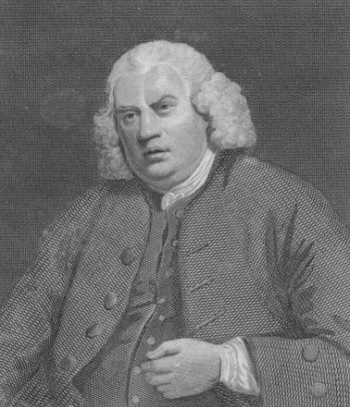
Dictionaries such as Samuel Johnson’s, A Dictionary of the English Language, published in two volumes in 1755, and then Noah Webster’s two volumes constituting An American Dictionary of the English Language, issued in 1828, are recognized for their foundational contributions to the development and standardization of the English language. The greatest work of English lexicography was compiled, edited, and published between 1884 and 1928 and currently bears the title Oxford English Dictionary. The first edition OED included over 400,000 words and phrases in ten volumes. These three important dictionaries have contributed to make the English language what it is today by providing standardized spellings, proper pronunciations, the parts of speech for each word, the languages of origin for words, and etymologies. Since my school-boy days I have learned that dictionaries are friends ready to help rather than foes imposed by the need of the moment. The two books I currently use most often and have readily at hand are a pocket-size complete Bible and a compact American Heritage Dictionary.
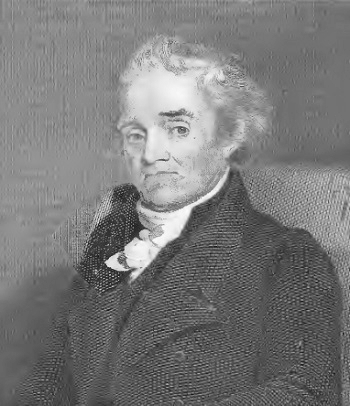
The dictionaries by Johnson and Webster, and the mammoth OED are not the only lexicons of significance for English. One dictionary predates Johnson’s by 150 years and was published in London in 1604 by Rev. Robert Cawdrey bearing the title A Table Alphabeticall…[etc.; a very long title]. Cawdrey was a Puritan who was deprived of his living as a minister in 1587 because of disparaging remarks regarding episcopacy and the Book of Common Prayer. His Table was one way he earned a living after the loss of his Church of England salary. There is only one extant copy of Table but thanks to its holding institution, the Bodleian Library, it has been transcribed and published as The First English Dictionary 1604. It includes 2,500 words briefly defined with some words noted for their French or Greek origin. Cawdrey’s work is simply a list of short definitions. Neither parts of speech nor pronunciations are given and there are no entries for J, K, U, W, X, and Y (words with J beginnings would be defined in “I” such as iustifie for justify). There is only one word beginning with Z, Zodiak. The words selected by Cawdrey are those he considered “hard usuall English wordes, borrowed from the Hebrew, Greek, Latine, or French.” The author of the introduction, John Simpson, who is the current chief editor of the OED, observes that Cawdrey did not intend Table to be a complete list of English words but rather a catalog of less often used and more difficult to understand words. Some readers of Presbyterians of the Past may recognize the surname Cawdrey because Daniel Cawdrey (1587/8-1664) was an ardent presbyterian opponent of independent church government at the Westminster Assembly. Robert was Daniel’s father.
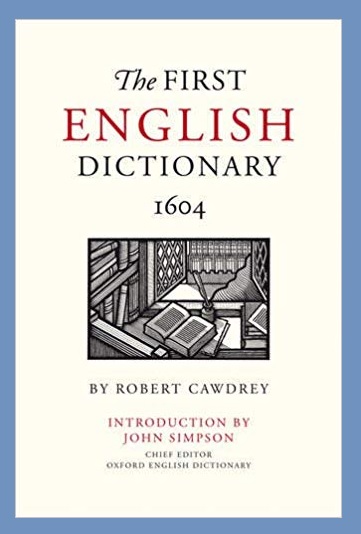
Some of the words included in Table provide a picture of church and theological issues as the seventeenth century began. It is not surprising, but the definition of theologie is “diuinitie, the science of living blessedly for euer,” which comes straight out of William Perkins’s A Golden Chaine. Turning to the current definition in my American Heritage Dictionary, theology is “the study of the nature of God and religious truth.” Perkins’s definition might not have been held by all his contemporaries, but it shows his era’s interest in casuistry and applied doctrine. Other definitions in Table include deacon, “provider for the poore”; euangell, “the gospell, or glad tidings”; eucharist, “a thanksgiving, the Lord’s supper”; heathen, “see Gentile,” which in turn says, “a heathen”; and presbitarie, “eldership.” There are several other theological terms included but the principal church-related words are associated with worship and ecclesiology. The first edition of Table was followed by editions in 1609, 1613, and 1617. All four editions were published during the reign of King James I, when issues of polity and worship divided the kingdom as he worked to control the Church of England and suppress opposition from Puritans and other dissenters.
Is there any continuing value in the use of dictionaries such as Cawdrey’s, Johnson’s, Webster’s, and the Oxford English Dictionary (currently under revision for a third edition)? Some might say no because modern dictionaries are available and new is always better. For historians, whether professional or armchair, the meaning of any word in an antiquarian document or publication must be understood with the definition it had at the time. Some examples of English word meanings that changed over the years have been provided by the Oxford English Dictionary and one thing to notice is that words sometimes have radical changes in meaning. The OED site shows that nice, a word with a positive meaning as it is most often used today, has evolved over the years from a decidedly negative meaning. In the case of nice, reading an old passage with the word while giving it the modern definition would result in an incorrect understanding of the passage. For history writers to interpret the past and write well they must “Look it up in the dictionary” as a way of life. The more a writer uses a dictionary the more its content is appreciated not only for quick definitions but also for general improvement in communication. Maybe recreation among the dictionaries is not such a bad idea.
Please visit the Presbyterians of the Past homepage and see the topical selections included in the recently updated “Notes & News” collection. Older entries no longer available on the homepage can be accessed in the “Notes & News Archive.”
Barry Waugh
Notes—Perkins’s definition of theologie is as taken from Ian Breward’s collection of condensed Perkins selections in The Work of William Perkins, Abingdon: Sutton Courtenay Press, 1970; the definition is on page 177. Perkins’s A Golden Chaine was first published circa 1592.
For an interesting account of the OED project and intrigue associated with its publication read, The Professor and the Madman: A Tale of Murder, Insanity, and the Making of the Oxford English Dictionary, by Simon Winchester. Information about the OED was located on its website.
The fourth edition of Cawdrey’s Table, 1617, complete with its lengthy title can be viewed on the British Library website. Information about Robert Cawdrey is in John Simpson’s introduction to The First English Dictionary 1604. Information about Daniel Cawdrey is in vol. 1 of Chad Van Dixhoorn’s The Minutes and Papers of the Westminster Assembly.



